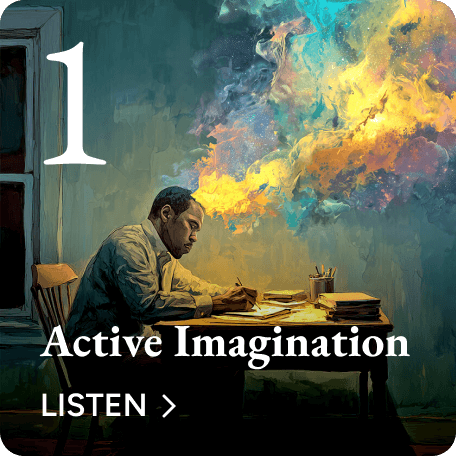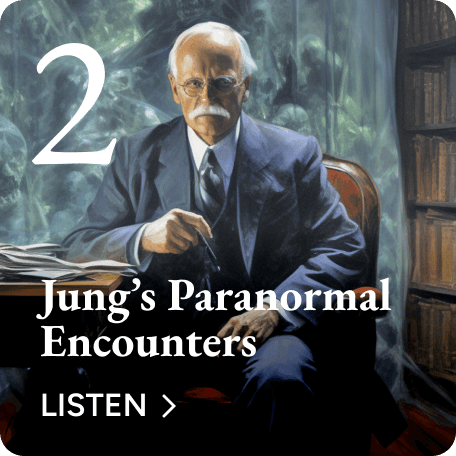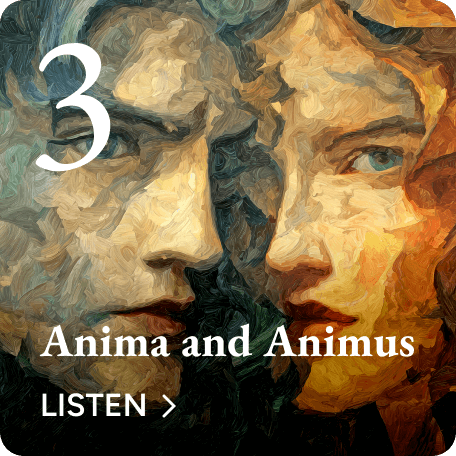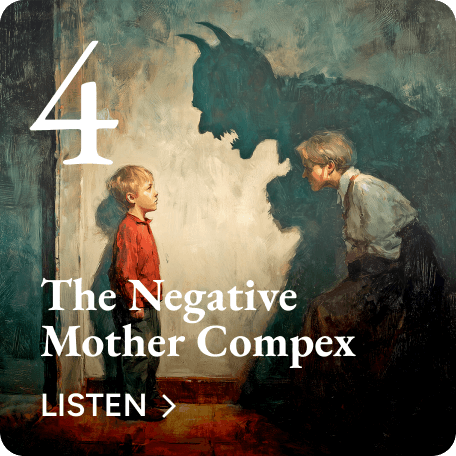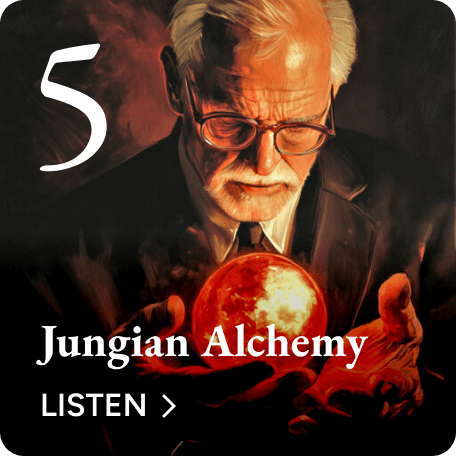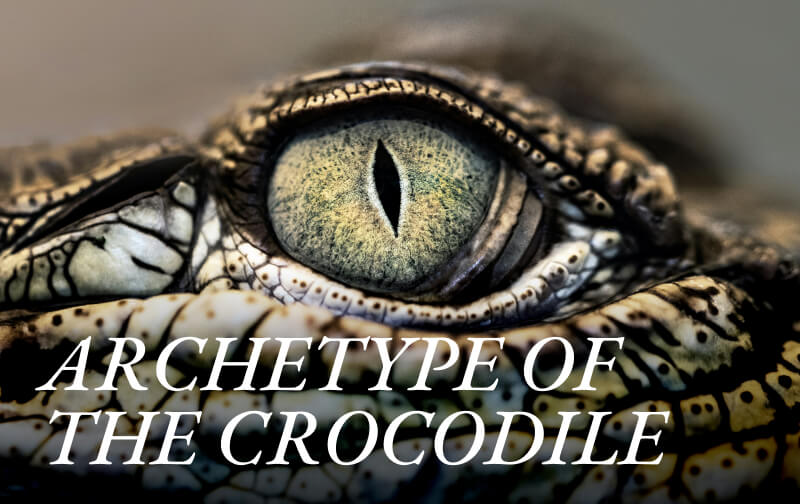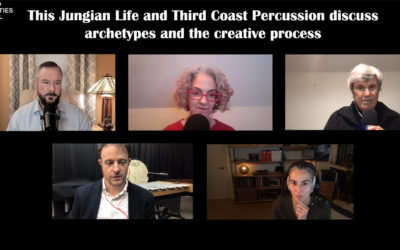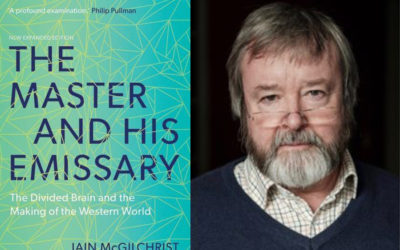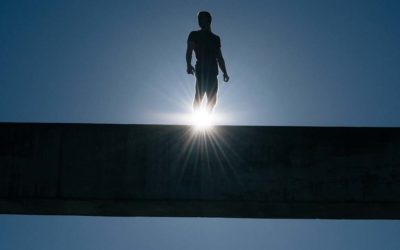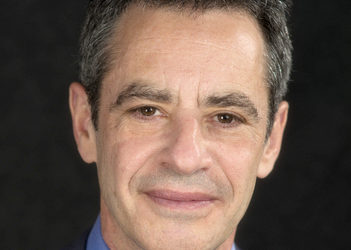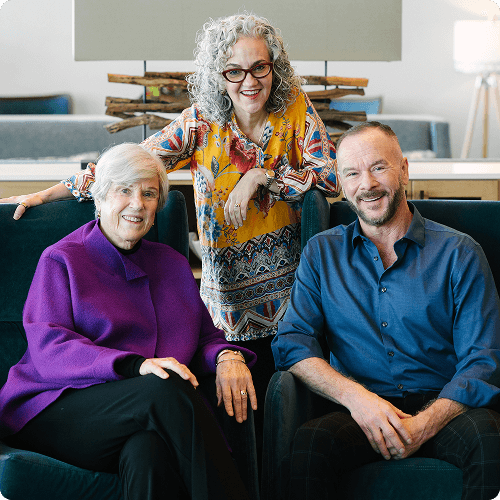Over 25 Million Downloads
Our Podcast
Eavesdrop on Lisa, Deb, and Joseph as they engage in lively, sometimes irreverent conversations about a wide range of topics and dream analysis through the lens of depth psychology provided by Carl Jung.
Over 25 Million Downloads
Our Podcast
Upcoming Price Increase
Thinking about joining Dream School?
The price of joining This Jungian Life Dream School will be increasing by around ten percent on March 1st, reflecting rising costs and the continued depth of what we offer inside the program. If you’ve been thinking about joining, this is a good moment to come on board at the current rate before the increase takes effect.
The Archetype of the Crocodile
The crocodile and its alligator cousin appear regularly in dreams. Its primordial force, seemingly submerged in psyche’s ancient riverbeds, can erupt to drown, dismember and devour the ego’s claim to autonomy.
ARCHETYPES AND THE CREATIVE PROCESS: A Discussion with Third Coast Percussion
Archetypes is a sonic exploration of the human experience. This Jungian Life in conversation with musicians Clarice Assad and David Skidmore features an exploration of the creative process.
FALLING IN LOVE: Bewitched, Bothered & Bewildered
Jung says, “Love is a power of destiny, whose force reaches from heaven to hell.” Falling in love is an initiation into the divine—light, and dark—as personal and archetypal forces combine and combust. In thrall to the magical other through whom we experience newfound parts of ourselves, we fall into a reality that transcends and possesses us.
A WELL-ALIGNED MIND: How to Be Alive
Guest Iain McGilchrist is a renowned psychiatrist, researcher, and author. His 2009 book, The Master and His Emissary gained worldwide fame for showing how differences between brain hemispheres affect our perceptions – and guide our lives.
HUMANIZING THE HERO
Mythological heroes defend, protect and quest. They range from warriors, adventurers, and saviors to magicians, loners, and rebels, but one way or another, they battle bad for the sake of good. They have courage, skill, and strength, but never a troubling moment. Although we still delight in heroes with might and shine, modern times have given rise to a new ideal: the everyday hero.
The Fiery Furnace of Ambition
Ambition is a fire whose flames first rise in the first half of life when hopes and dreams are fueled by possibilities in the external world. It takes creative audacity to seize a dream, develop a talent, or commit to a calling. Ambition can also be fueled by narcissism, power-seeking, or striving to overcome inadequacy.
THE ARCHETYPE OF THE WITCH: Dangerous, Denied & Dishonored
Like all aspects of the collective unconscious, the witch lays low when times are fine but rises when times are tense. Her archetypal power then infects humankind, inciting mass hysteria and the horrors of persecutory epidemics.
Assessing Our Psychic Inheritance: Jung and Parenting
Jung said of the parent-child relationship: “Nothing exerts a stronger psychic effect upon the human environment, and especially upon children, than the life which the parents have not lived.” Jung understood that parents could unconsciously compel children to fulfill parental dreams or compensate for disappointments.
DOES ANALYSIS WORK? A Conversation with Jonathan Shedler, PhD
“Talk is powerful medicine.” Renowned researcher and clinician Jonathan Shedler, Ph.D., joins us to discuss the effectiveness of psychodynamic psychotherapy. While so-called evidence-based therapies—brief treatments conducted by instruction manuals—offer benefits for some, their status as the “gold standard” of treatment for mental distress is undeserved.
JUSTICE: The Struggle for Balance
Principles of fairness and justice have deep roots in the human psyche: we want to receive our fair share and a fair shake. When man injures man, we may protest, strive for redress, and measure wrong with morality—but what about godly misfortunes? Life, myth, and religion are rich with issues of injustice. Whether personal injury, social inequality, or divine mystery, over-insistence on fairness can lead to depression, resentment, and fixation.
CONFRONTING SHADOW: The Work of Self-Discovery
Psychotherapy is essentially the work of making shadow conscious—all that we have not discerned then disowned, or projected onto others. We seldom welcome shadow, for it is marked by emotions and motivations that deflate, disturb, and dethrone ego. From family scuffles to political hostilities and outright war, we most often meet our shadow in others. Its presence is signaled by a strong urge to take action, with feelings ranging from judgment to antagonism, from pity to self-sacrifice, and from obsession to disgust. If we have the courage to face and relate to the inner world of another, we experience and expand our own inner world. Shadow is the dark doorway to renewal and development, creativity and compassion. Jung said, “One does not become enlightened by imagining figures of light, but by making the darkness conscious.”
SELF-REFLECTION: What Was I Thinking?
Jung says, “There is another instinct, different from the drive to activity and so far as we know specifically human, which might be called the reflective instinct.” Self-reflection is correlated with consciousness and is arguably humankind’s unique and essential competency: a meta-cognitive capacity that is aware of its own awareness.
